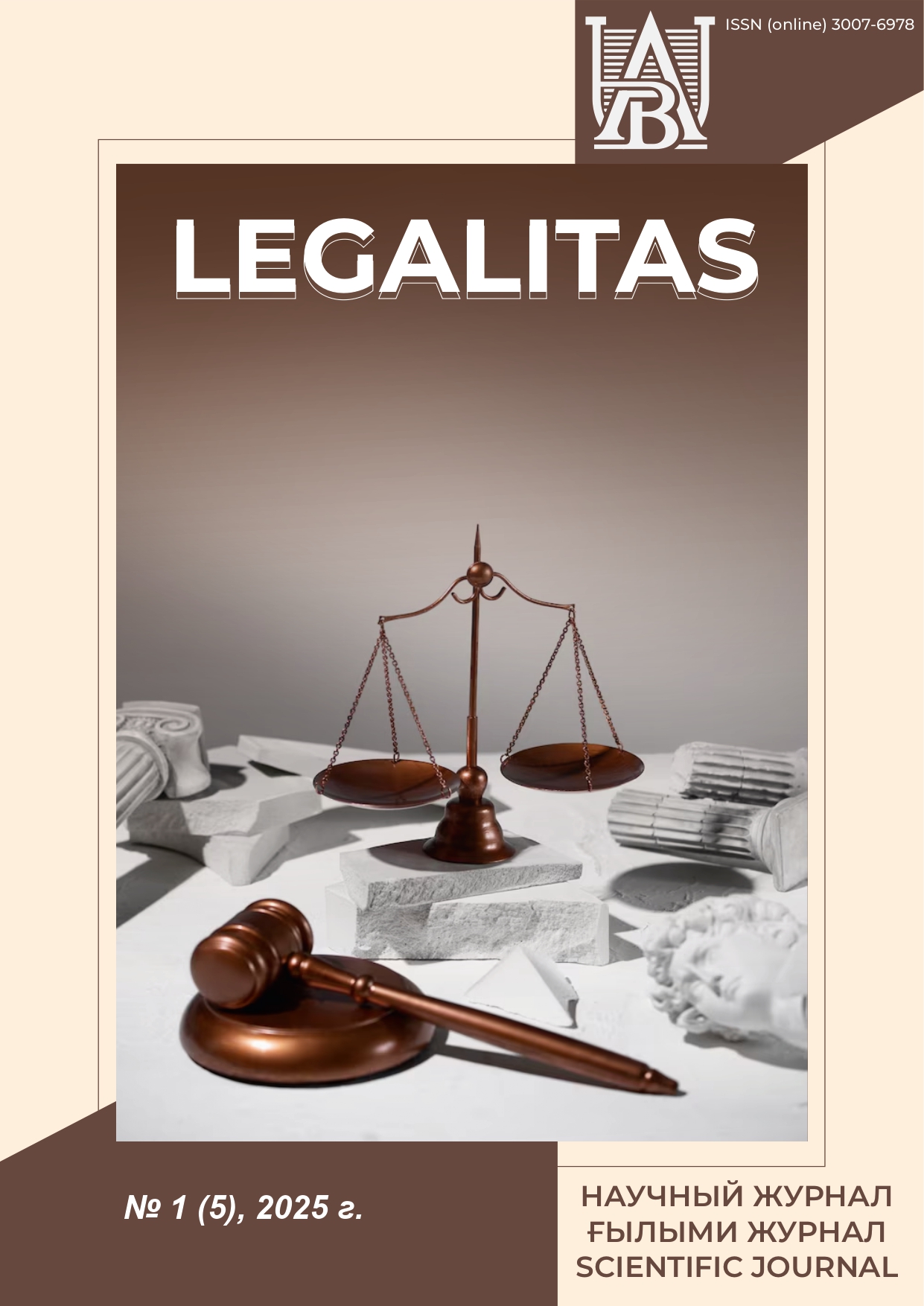PROCEDURAL DETENTION IN LIGHT OF ENSURING INDIVIDUAL RIGHTS: ANALYSIS OF LEGAL AND PRACTICAL CONFLICTS
Keywords:
procedural detention, legal conflicts, international standards, judicial oversight, video recording, challenging detention, criminal justice reform.Abstract
This article analyzes procedural detention in Kazakhstan, identifying legal gaps and practical violations. A study of the norms of the Criminal Procedure Code of the Republic of Kazakhstan (2014) and practices from 2023–2025 reveals: exceeding the 72-hour limit (25%), absence of legal counsel (30%), formality of protocols (35%), and overcrowding in temporary detention facilities (40%). A comparison with the ICCPR (1966), ECHR practice, and reforms in Georgia reveals discrepancies in terms and control.
Proposed reforms include: reducing the detention period to 48 hours, video recording, strengthening judicial oversight, digitalization, expanding appeal mechanisms (65% of complaints rejected in 2022), and enhancing legal aid. The aim is to create a legal system that balances investigation needs with citizens' rights, thereby strengthening trust in justice amid Kazakhstan's criminal justice modernization. This work contributes to the reform of the Criminal Procedure Code, offering solutions to improve transparency and safeguard rights.

